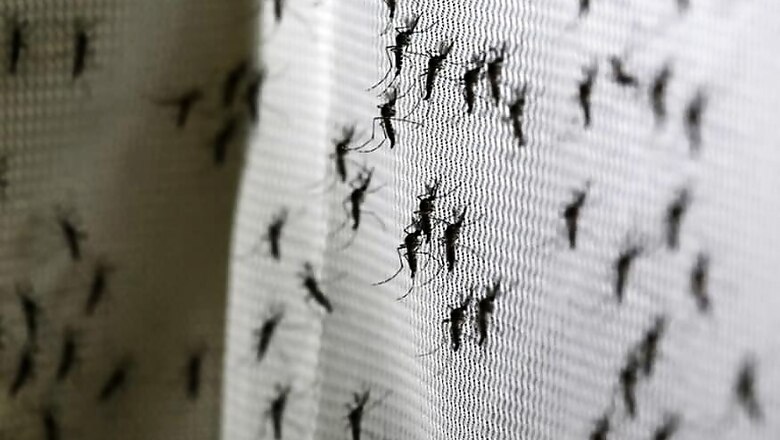
views
Sindh has recorded 52,377 cases of Malaria across the province during the period between January and July.
Officials of the Sindh Malaria Control Programme said that the rise in cases are due to heavy rains, The Dawn reported. There has been a spike in mosquito-borne diseases like malaria, chikungunya and dengue in the nation due to heavy monsoons.
Malaria is caused by Plasmodium parasites, which spread to people through the bites of infected female Anopheles mosquitoes, called "malaria vectors." While there are 5 parasite species that cause malaria in humans, 2 of these species – P. falciparum and P. vivax – pose the greatest threat.
The data released by the officials show that a total of 52,377 malaria cases were detected across the province this year till July.
Further, the report said that most of the cases were reported from Thatta (10,191), Sujawal (4,428), Larkana (4,121), Tando Muhammad Khan (3,994), Badin (3,602), Mirpurkhas (3,523) and Umerkot (3,183).
Health officials say that malaria cases have been more common in rural areas as compared to urban areas while dengue cases were generally reported from cities.
Karachi saw about 1873 malaria cases in 2019 at the centres working in the city for treatment of malaria patients.
The number of cases was low in Karachi, Hyderabad and other major cities as compared to rural areas of the province.
However, cases were also observed in the coastal areas of Karachi and its slum areas.
Incidentally, no deaths related to the mosquito-borne disease malaria were reported at the 600 centres which are being operated all over the province.
The report stated that the number of malaria cases has increased significantly in the rural areas of Sindh in the past couple years due to unavailability of funds, which compelled the Singh Malaria Control Programme to suspend activities to control the mosquito-borne disease.
Speaking to PPI, the programme director Dr Mahmood Iqbal said that malaria control activities had resumed across the province after release of quarterly budget.
As of 2017, WHO states that there have been 219 million malaria cases worldwide with 4,35,000 people succumbing to the mosquito-borne disease.




















Comments
0 comment